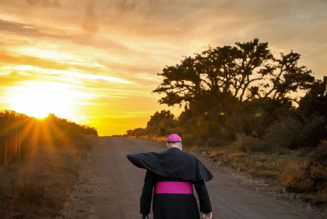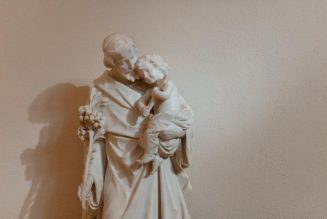ROME – When I arrived in Rome a quarter-century ago, I met a veteran monsignor who’d been working in the Vatican for decades by that point, and who told me a story which aptly summed up the psychology of what might loosely be called the place’s “old guard.”
The tale – which, frankly, smacks of being apocryphal, although the guy insisted it actually happened – goes like this.
When he first began working in the Vatican, this monsignor said, he’d been assigned a cramped and decrepit office, the lone advantage of which was that it had a small window with a partially obstructed view of St. Peter’s Square. One hot day he tried to raise the window, only to find that it had been painted shut. Thinking at the time this was a perfect metaphor for the failure of the Vatican to adopt Pope John XXIII’s famous injunction to “open the windows” to let in some fresh air, the next day he brought in a hammer and chisel, chipped away the paint, and triumphantly raised the window.
After a bit, he left for lunch. When he got back, he discovered that a pigeon from the square had flown in and wreaked havoc in the office, forcing the young cleric to spend a slightly revolting afternoon cleaning up the mess. Only then did he realize there may have been a reason for the shuttered window.
The moral of the story, this by-then grizzled old hand told me, is that there’s often a wisdom embedded in the traditions of the Vatican, even if the people charged with preserving those traditions may have forgotten, or never known in the first place, what the original logic was.
The anecdote comes to mind in light of the two great Vatican events playing out this month, the Synod of Bishops on synodality and the “trial of the century” for various alleged financial crimes.
In both cases, critics allege that these undertakings are larger-scale analogs to that young cleric and his chisel, i.e., impetuous breaks with tradition, often led by people who don’t have the experience or background to appreciate what they’re doing.
To begin with the synod, it’s an institution which has been around since 1965 and which was originally conceived by Pope Paul VI as a way to extend collegiality among the world’s bishops after the close of the Second Vatican Council. It’s undergone significant mutations this time, above all the inclusion of a host of non-bishop voting members.
In truth, this is a less a Synod “of” Bishops than a Synod “with” Bishops, which critics allege threatens to subvert the hierarchical character of the Catholic Church and to set the stage for whatever doctrinal mischief they imagine might result.
Sotto voce, it irritates some long-time curial veterans to no end that several figures seen as among the architects of the synodal exercise, such as new Cardinal Víctor Manuel Fernández, basically got to the Vatican five minutes ago and yet are already setting the place on its ear.
As far as the trial goes, it’s lumbering toward a conclusion amid an increasingly critical spotlight on the chief prosecutor, Italian civil lawyer Alessandro Diddi, who doesn’t have any background in either canon law or the Vatican’s own penal system, and who’s repeatedly been accused of ignorance of basic Vatican realities.
To some extent, the sniping has been fairly petty. Critics pounce, for instance, every time Diddi bungles an ecclesiastical title. At one point, he referred to Italian Cardinal Angelo Becciu, the chief defendant in the case, as Sua Eminenza Monsignor Becciu. In Vatican parlance, you don’t call a cardinal “monsignor.”
In another widely noted gaffe, a recording of an interrogation of star witness Monsignor Alberto Perlasca captured Diddi responding “Cor what?” when Perlasca made reference to Cor Unum, a former pontifical council for Catholic charities suppressed by Pope Francis in 2017 as part of his reform of the Roman curia.
Aside from such relatively trivial matters, defense attorneys have charged Diddi with more substantive errors.
Lawyers for Cecilia Marogna, a self-described security expert who advised the Vatican on the liberation of a Colombian nun kidnapped by Islamic militants in Mali in 2017, have pointed out that she’s been charged with embezzlement, but under Vatican law only a public official can be charged with that specific crime, a status Marogna never held.
Attorneys for two former officials of the Vatican’s Financial Information Authority (now the Supervisory and Financial Information Authority) likewise have objected that their clients are charged with failing to block payments from the Secretariat of State to an Italian financier, yet under the Vatican statute that created the office, it had no authority over the Secretariat of State and thus no capacity to veto its transactions.
Overall, the critique is that entrusting such a high-profile prosecution to an outsider is a recipe for disaster, which, in the end, will eviscerate any pretense of legitimacy when verdicts eventually come down.
Of course, the response to such objections is fairly obvious.
Pope Francis is a reformer, and if you insist on simply doing things the way they’ve always been done, nothing would ever change. Mistakes may be made along the way, but such, the pope’s supporters say, is the price of progress. If both the synod and the trial are in the hands of people disinclined to business as usual, that’s by design.
On the other hand, there’s also an argument to be made that Vatican reform is a bit like what generations of English teachers have told precocious young students who complain that if poets such as E.E. Cummings could break the rules of grammar, they shouldn’t be penalized for misspellings or stray commas: “First show me you’ve mastered the system,” good teachers always say, “then you can start taking liberties with it.”
The Vatican is, undeniably, sui generis. It’s not a large diocese, or an NGO, or a multi-national corporation, or a modern nation-state, but an historically unique vehicle for governance of the universal Church. That identity has been protected over the centuries by a welter of laws, customs and traditions, which may seem counter-intuitive or even dysfunctional to outsiders, but which, with time and perspective, often do reveal a certain logic.
The drama of both the synod and the trial, therefore, in some ways boils down to whether the change agents Pope Francis has placed in charge will strike the right balance between continuity and rupture – or whether, as in the story with which we began, once again the pigeons will come home to roost.







